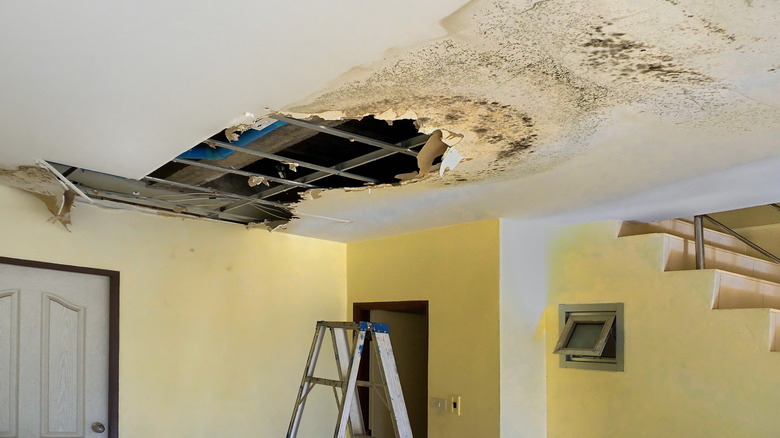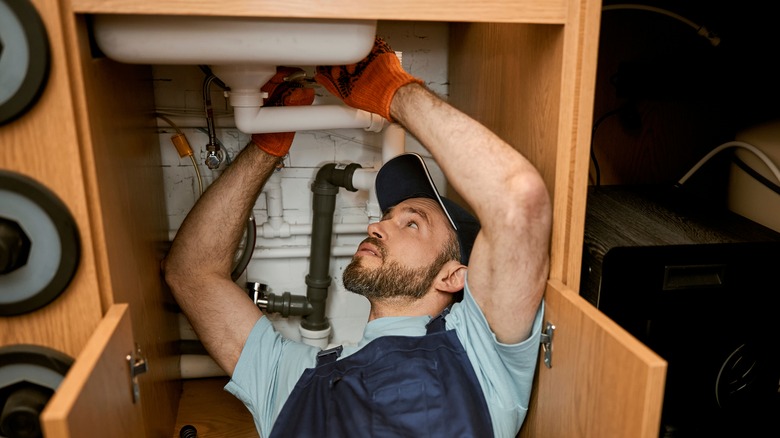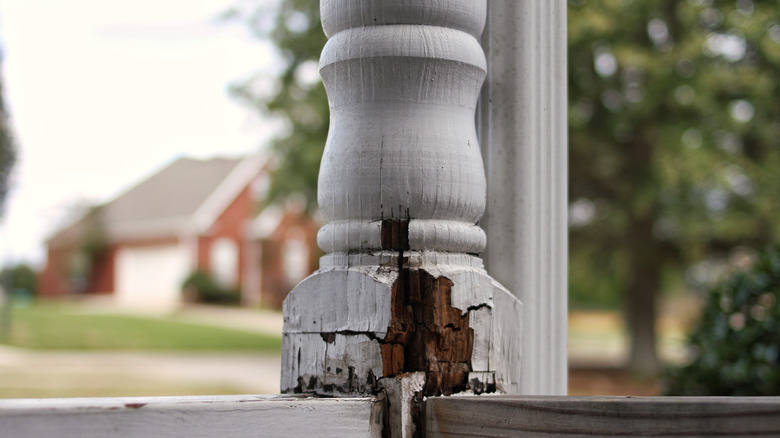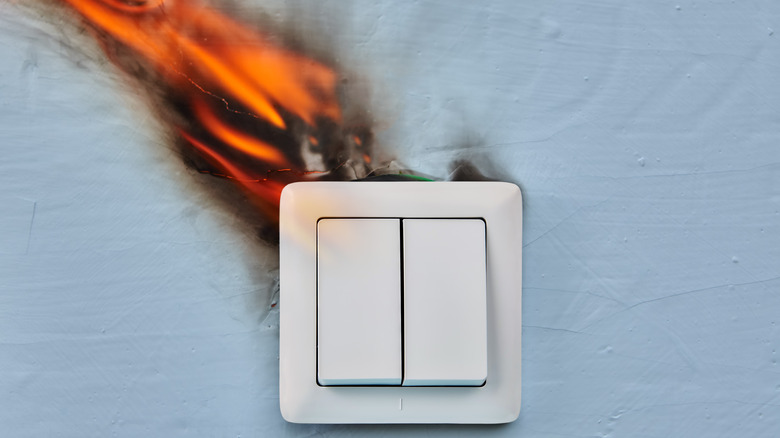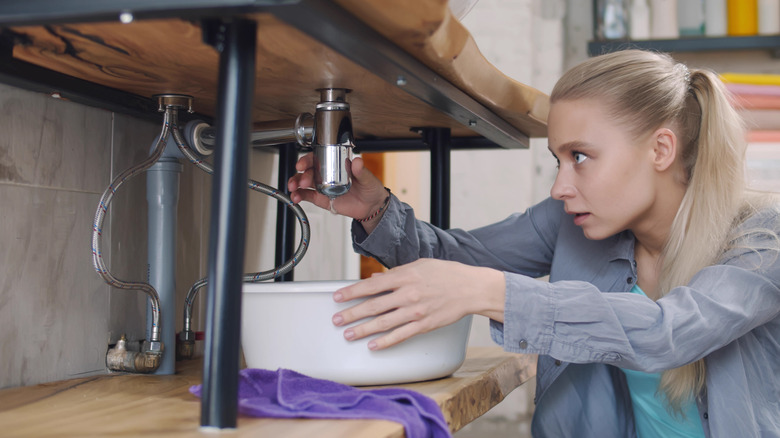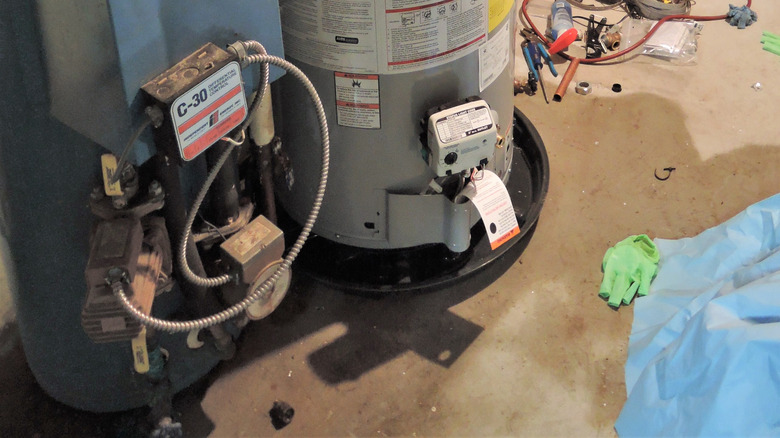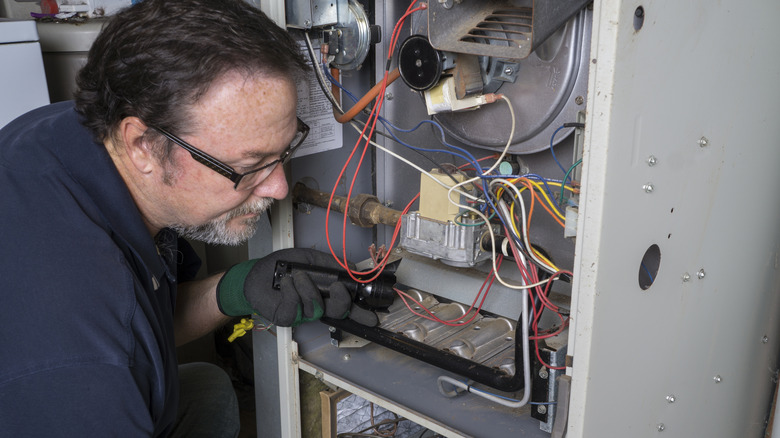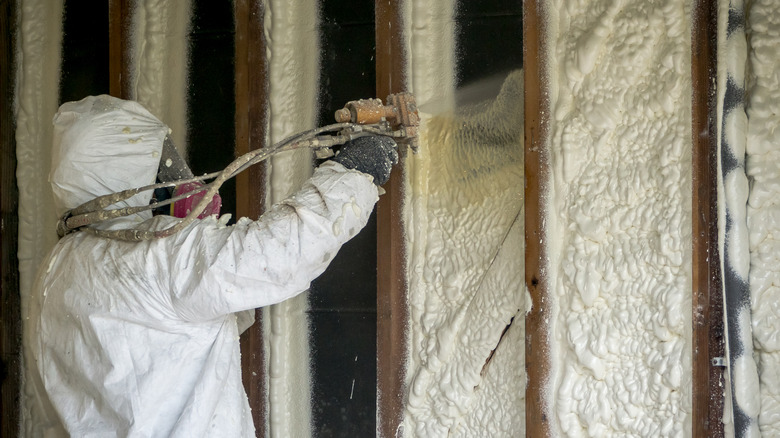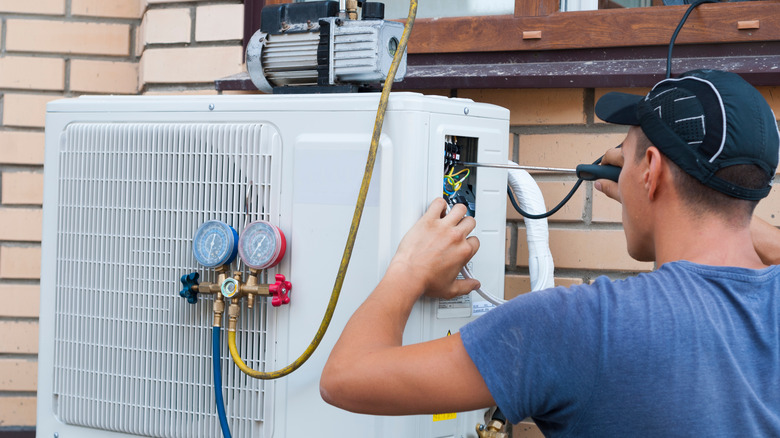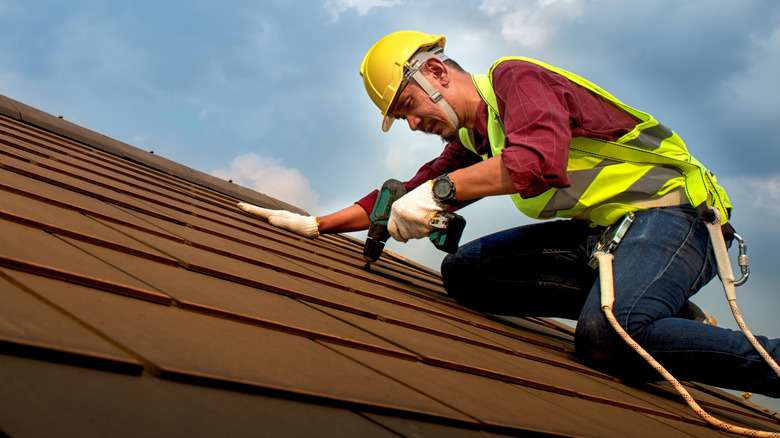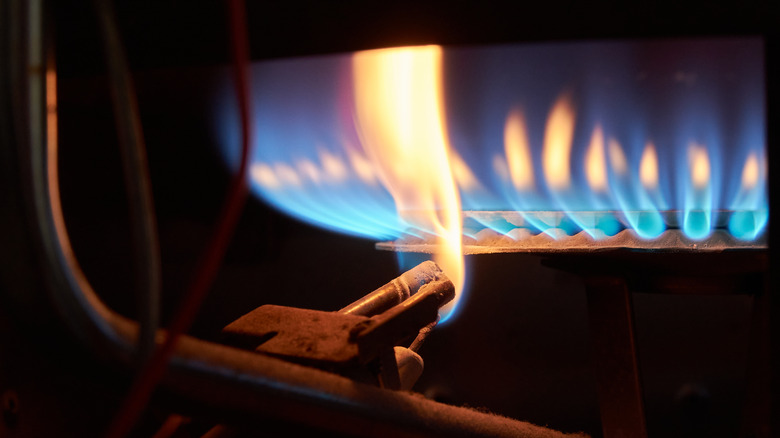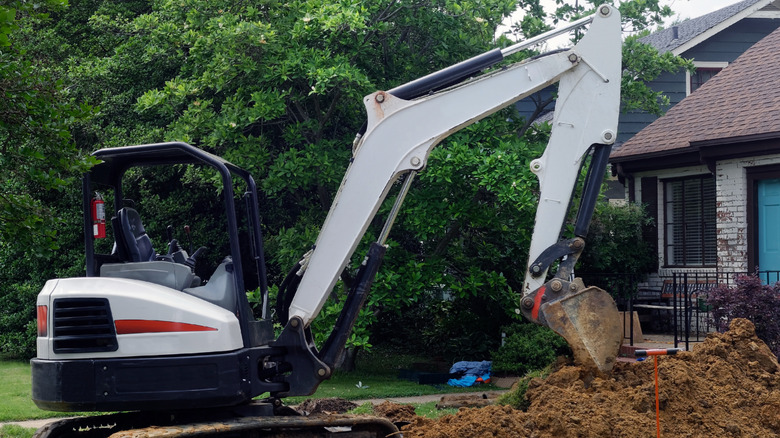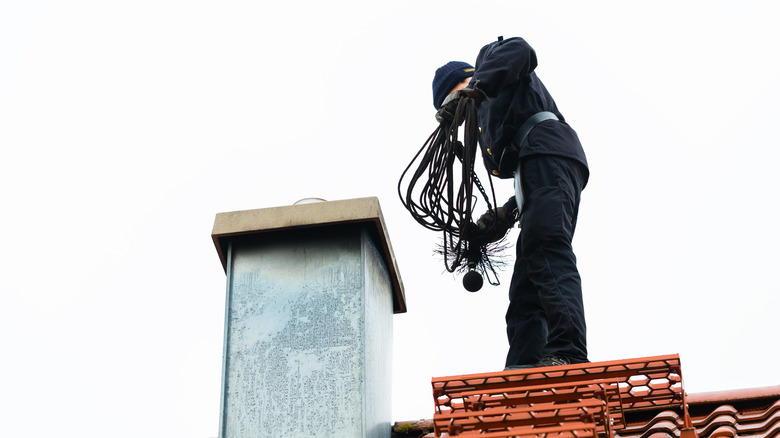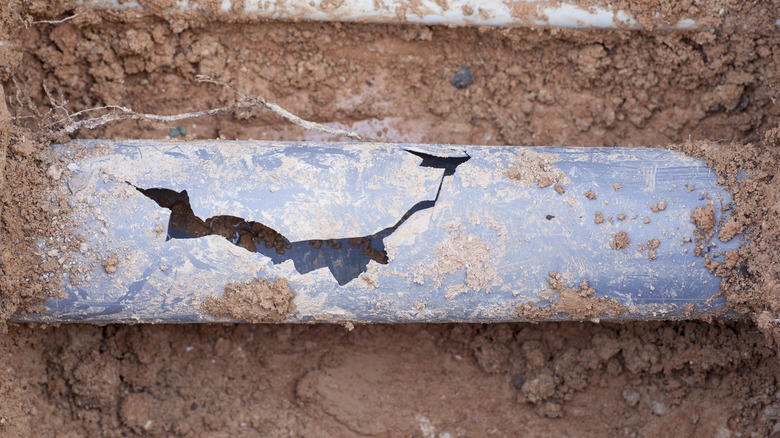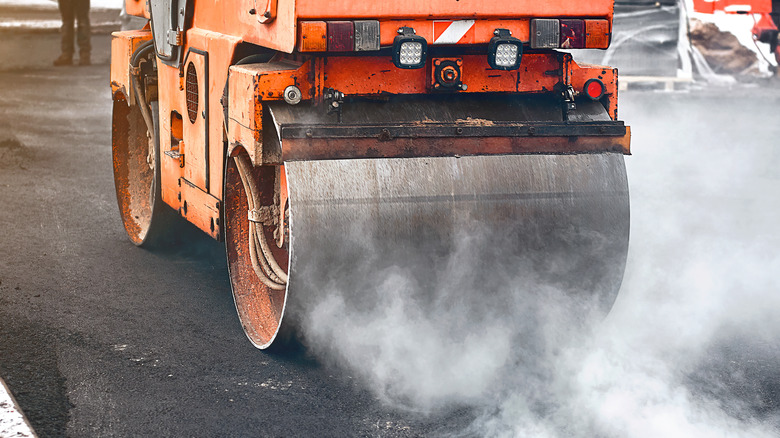14 Home Renovation Projects That You'll Need A Pro To Pull Off
While it might seem like a DIY renovation would be cheaper, there are some good reasons to hire a contractor for certain projects. In addition to simply having the knowledge and experience to get the job done, there are other considerations like saving yourself some time and money. Contractors are able to make direct relationships with vendors of materials, take advantage of bulk deals, and get most of what they need for a project much cheaper than the average DIY enthusiast will. They also have a good idea of how long the work should take and can organize the workflow better than someone who's never done a renovation.
It might seem expensive, but Forbes points out that contractors are paid to learn building codes and are specialized in the type of work you need done. A DIY renovation project might actually detract from the value of your home if it doesn't meet building code standards. To resell in the future, or even to pass an inspection for homeowners insurance, you might need to have your renovation redone by a pro anyway. Here's the skinny on the home renovation projects you're better off hiring a contractor for.
Moving your kitchen sink
Adding a sink or moving your existing one more than a few feet usually requires a permit, according to Bieg Plumbing Company. That's because adding plumbing that travels through the walls or under the floor can be risky if you don't know what you're doing. Imagine causing a leak in a place you can't see, soaking through the structure of your home. Also, extending the drain requires proper grading and sometimes will mean running a whole new drain pipe back to the sewer line, which also likely requires a permit. This kind of plumbing project is better left to the pros unless you have some serious plumbing skills.
Even if you don't need to do any major plumbing work, if your sink improvement is part of a larger project that costs over a certain amount, some cities will require permits to be filed anyhow. This also means that your DIY plumbing will be recorded by your municipality and if it's not up to snuff, you could face an expensive redo. Rather than shoulder the liability, it's better to have a licensed professional take responsibility for the work and avoid future headaches.
Rebuilding a porch or deck
A deck or porch remodel might seem pretty straightforward, but it turns out that you can run into all kinds of complications depending on the height and size of your surface. State, county, municipal, and even local building codes can apply to a deck structure and can depend on its size, height, roof size, and roof height as well as proximity to property lines. Plasticine House advises that running afoul of local bylaws and codes can incur fines, back property taxes, and other penalties.
The other major factor to consider when tackling a deck renovation project is safety. A licensed contractor will be able to ensure that footings are installed properly, that everything is level, and of course that your deck is safe. Structural stability, adequate railings, and standard steps are all things a contractor will be able to ensure that your deck is tall enough to qualify for building code enforcement or not (via Homestar).
Adding a light switch
It might not be surprising that you would need an electrician for doing any major wiring in your home, but what you might not realize is that even jobs like installing a new outlet can require a licensed pro. Anything that requires running wire from your breaker box or connecting the main house power to a new fixture should be done by a licensed electrician, not only because such a task might require an electrical license per building codes, but also because such a repair can be dangerous if it's done incorrectly, says Westphal & Company.
Even if your DIY job is safe, it might not work. Wiring for electrical outlets and light switches is easy to get wrong, and if you do, the best scenario is that it doesn't work at all. At worst, it could cause an electrical shock or a fire. Better to get a licensed professional involved before any of those eventualities.
Remodeling your bathroom
Bathrooms might often be the smallest room of the house, but they have a lot of structures and systems involved that can make them quite complicated. Renovating a bathroom isn't at all simple, and often involves wiring, plumbing, HVAC, and flooring.
There are structural considerations as well as building codes to consider, according to Eakman Construction. Other things that make a bathroom remodel best left to the pros are time and money constraints. While you might save money in the short-term by doing your own work, in the long run, you might run into expensive problems. The quality of the work is another thing to think about. In addition to looking better, a professional job will likely last longer than a DIY job, especially when considering factors like moisture, drainage, and ventilation. Saving money by doing it yourself might mean redoing the work in a year or two, costing you more in the long run.
Installing a water heater
As with many home renovation projects, it is technically possible to replace or upgrade your own water heater. However, just because it's possible, doesn't mean it's a good idea. Water heaters have many components that can go wrong including plumbing, electrical, and in some cases natural gas components. These are major red flags to the average DIYer, as anything that can cause a flood or fire should be handled by a professional contractor.
According to Southlake Style, doing your own installation means that you are taking on legal, financial, and safety risks. Building codes often have language regulating the position as well as the configuration of a water heater. If you don't properly purge the air from the new tank, set the valves correctly, or have proper drainage, you're looking at a big expensive mess instead of a hot water heater. Hiring a contractor to do your installation can avoid these problems as well as ensure your safety.
Installing a new furnace
There are lots of videos you can watch for free that will tell you step-by-step how to install a new furnace. But installing a furnace really is better done by a licensed contractor because the things that can go wrong can be extremely dangerous as well as expensive.
Furnaces can cause a lot of damage if they malfunction. Impressive Interior Design warns that in addition to the obvious fire risk an improperly installed furnace can cause, they can also produce excess carbon monoxide, which can be lethal. Gas leaks are another possible result of a DIY furnace job. Being able to locate and stop a gas leak before an explosion occurs is the kind of gamble you don't want to make when dealing with the safety of everyone in and around your home. With such a great risk of explosion and poisoning, it almost goes without saying that you need a permit and a license to install a furnace. At best, a furnace that isn't installed correctly just won't work, leaving you without a heat source.
Spray foam insulation
Adding insulation is a good way to cut energy bills and make your home more comfortable, however doing your own spray insulation foam is a bad idea. While you can get a DIY foam insulation kit from your local big box hardware store, CBC recommends hiring a professional for this job.
The tricky part to spray-foam insulation isn't just that it needs to be done right to work, but that it can be a real safety hazard during installation. To start, the materials that the foam is made from are toxic, and require proper safety equipment to handle. You will need gloves, goggles, a mask that fits properly, and other protective clothing to keep yourself safe while applying the insulation.
The other risk that people might not recognize is the risk of fire. The propellant that keeps the foam in a liquid state is flammable as is the vapor it creates in process. This means that any open flame or ignition source (like a furnace) can cause a fire while the foam is being applied. The foam itself can cause a fire if applied too thickly due to the chemical process that occurs while it's curing. For all these reasons, hiring a contractor is an obvious choice.
Replacing your central AC unit
It might seem like a simple swap to replace an old AC unit with a new one, but there are complicated factors that make this more trouble than it might seem at first. Your AC has electrical components that are dangerous for anyone who isn't knowledgeable and certified. HVAC vents need to be balanced in order to ensure that the system is running as efficiently as possible to keep your energy bills in check, and your old ductwork will need to be properly fitted to your new AC unit.
Another factor that you might not consider, says Bell Brothers, when planning to update your AC is the removal and disposal of the old unit. Since air conditioners use Freon, they are quite a hassle to get rid of. You can't just leave it by the curb for the garbage truck. AC units can also be cumbersome and heavy, so this is a job better left to a qualified professional.
Fixing your roof
Fixing your roof is only a good idea if you have a significant amount of experience. In addition to the obvious danger of going out on your roof, there are the added risks of doing an incomplete or improper repair as well as running afoul of rules about materials and safety that you might not be familiar with.
While you might be able to do temporary repairs, making sure that everything is water-tight and meets codes is best left to a pro, according to Hennessey Roofing. You risk voiding the warranty on any materials you use unless you're familiar with proper installation, as well as any of the parts of your existing roof that need to be involved in the repair. Insurance companies will also refuse to cover damages that are incurred or caused by a DIY repair not done by a licensed contractor. These factors make repairing your own roof both physically and financially risky.
Install a new gas appliance
It might be tempting to try and replace your own gas range or hook up your new gas fireplace, but these aren't jobs for the uninitiated. Gas lines carry the danger of explosion, fire, and carbon monoxide poisoning if they aren't properly installed. For your own safety, as well as that of your neighbors, this is a job better left to the pros.
According to All Dry USA, you probably need permits to fit a gas appliance, not to mention the risk if something goes wrong. Unless you're an expert at both local and national codes regulating natural gas distribution, you likely won't be able to follow the proper codes for venting, and this could lead to fines as well as disaster. You might void your insurance coverage for any damage caused by your appliance if it malfunctions if you don't have a licensed contractor do the job, and you will also need to apply for a permit in some cases. The most important reason, though, to hire a professional contractor to install a gas appliance or extend your gas line, is that you can most likely avoid blowing up your house by doing so.
Regrading your yard
Adding a slope to your landscaping can seem like a perfectly simple DIY weekend project, and with the right equipment, it might not even take very long. But there are some pitfalls to digging up that much dirt, the most important being that you could cause a flood. Managing the flow of water so that it doesn't collect in a particular location, or surge, causing a flood, is an important factor. If you're not familiar with aquatic engineering (or flood prevention property codes), you should probably leave this one to the pros.
According to Surrounds Landscaping, it's also important to be knowledgeable about resource protection zones, steep slopes, and fill soil. These are parts of a grading situation that can be easily handled by a licensed contractor, but not necessarily navigated by a DIY enthusiast. If you are still planning on doing your own grading, you should consult with a professional, as well as calling 811 to make sure you won't hit any utility lines when you dig.
Chimney repair
It really should go without saying that you shouldn't try to fix your own chimney. If your chimney doesn't work the way it's supposed to, you can fill your house with smoke and soot as well as causing harm to surrounding structures if the chimney gets too hot. There's also a risk of fire if it heats up too much. Because of the risk of fire alone, DIY chimney projects are not recommended.
Chimneys are actually pretty hard to work on, says Fiddler on the Roof. They're difficult to see into, and it can be hard to get to components that are inside without the right tools. Specialized equipment is required to safely perform repairs to a chimney. Of course, there are also building codes to watch for as well as advanced masonry. A mistake could cause fire or structural issues, so a contractor who is skilled and experienced should really do the work.
Sewer or drainpipe repair
The most obvious reason not to do your own sewer pipe repair is the risk of raw sewage backing up into your house. That possibility is enough to convince most people to rely on a professional for these types of plumbing repairs, but that's not the only risk. Sewer repairs are legally relegated to licensed plumbers in most municipalities because the risk of backed up sewer lines doesn't ultimately only affect the single homeowner with the problem, but can also affect the whole neighborhood.
HomeServe warns that DIY sewer repairs have a host of consequences associated with them including methane gas exposure, salmonella infection, rupture of the sewer line while it's in use, and clogs backing up into the drains in your house. If you don't have the right equipment and training, repairing a sewer pipe just isn't practical, not to mention safety concerns. The public health aspect of this repair might be the most glaring reason to hire a contractor.
Adding a driveway or patio
Some smaller paving jobs are fine to DIY, but when it comes to larger projects, especially load-bearing ones, hiring a pro is your best bet. Any time you drive your vehicle into your driveway, you'll want to be confident that the pavement won't give way underneath you. The process of leveling and packing the sand you'll need to put down before you lay pavement requires some advanced equipment beyond what most homeowners have access to.
Because of the need for heavy equipment, and the experience necessary to operate it properly, Trusted Pros advises against trying to do this project yourself unless you have some paving experience already. Trying to lay pavement on bedding material that hasn't been properly compacted, leveled, and packed down could result in cracking and shifting, ultimately making your pavement useless. Rather than risk your pavement failing, it's better to hire a qualified professional for the job and rest assured that it will last longer if it is properly installed.
